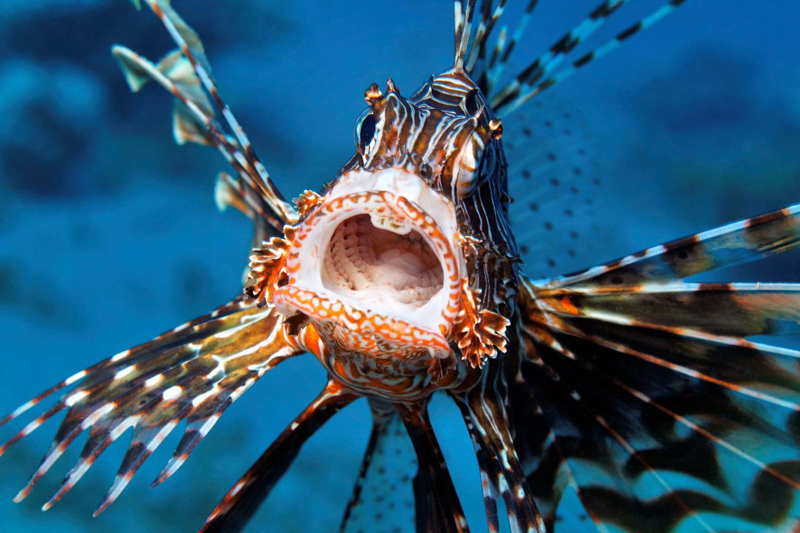
If only all invasive species were as delicious as the Lionfish. If Kudzu salads were crisp and paired beautifully with Chardonnay, the south would soon be rid of the strangling vines. Unfortunately, there are few simple solutions for the invasive species that plague the United States. Zebra mussels, snakehead fish, and privet have taken over entire swaths of the country, with efforts to slow their progress largely ineffective.
The lionfish is a case in point. They’re beautiful, with long flowing fins and bright stripes. But get past their good looks and they lose quite a bit of their appeal. Likely repeatedly released into the wild from someone’s aquarium, they took quite a liking to the Florida coastline and multiplied exponentially. In their native Pacific they don’t cause problems, but in the struggling coral reefs off the Florida coast, they’re decimating native species, which they consume with voracious appetites. They can lay tens of thousands of eggs every few days, and their spines, which carry a toxic venom, scare off predators. They aren’t just eating – they’re eating everything. They eat small crustaceans and any type of fish unlucky enough to swim past, which includes commercially viable species like grouper.
There’s hope for the Florida coast, but a renewed effort to fight the lionfish takeover requires significant consumer buy-in. The solution? Eat them. Eat. Them. All.
Dethroning the Lionfish
Here’s the good news: Lionfish are easy to catch, easy to prepare, and taste absolutely delicious. They loiter near the ocean floor, where their poisonous spines prevent attack from above by predators. Recreational divers have been catching and eating lionfish for years, and the push to remove them from the reefs for good has encouraged others to join the fun.
Of course, their poisonous spines need to be removed before cooking. But once cleaned, the lionfish is an excellent dinner option.
Dining on the Reef King
The lionfish is high in Omega 3 fatty acids, which are important for long-term heart health. Its flaky, white flesh is slightly firmer than halibut with a flavor akin to grouper. It’s tasty enough to eat in sushi or sashimi, or as a Florida-style ceviche. Restaurants along the Florida coast prepare it fried or baked, and it will stand up to grilling nicely as long as you use a good quality fish basket.
Consumer buy-in is the key to saving Florida reefs from the lionfish. That means that Floridians need to buy the fish to cook at home, order it at restaurants, and talk to their friends about it. Consuming the lionfish is a tasty experience, but it’s also an important way to conquer a predator that is slowly destroying the precious reefs around the Sunshine state. This is a unique opportunity to participate in the fight against an invasive species.
